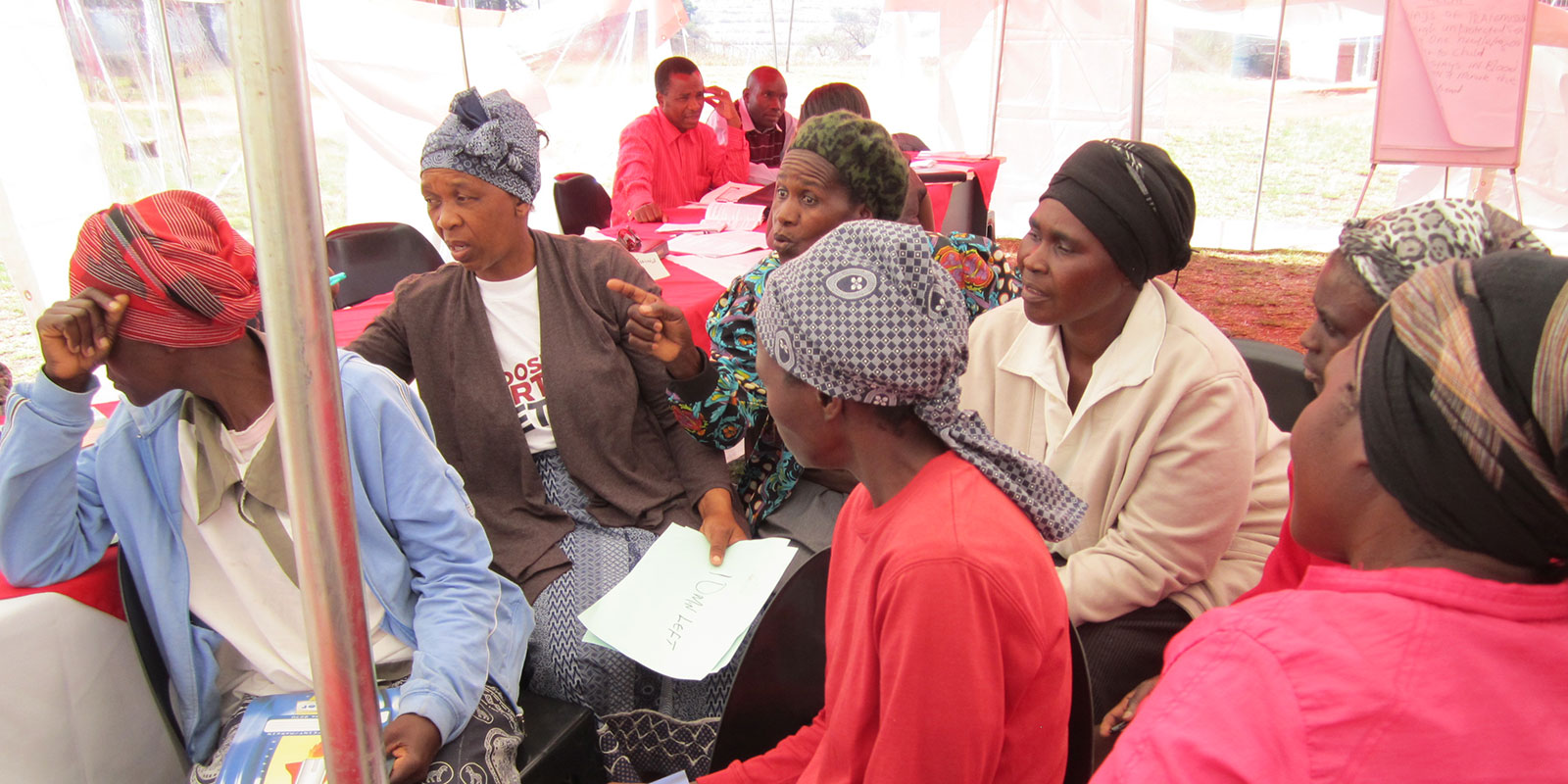International Women’s Day is celebrated annually on March 8 to commemorate the cultural, political, and socioeconomic achievements of women across the globe. It is also an important moment in the women’s rights movement, drawing attention to issues such as gender equality, Sexual and Reproductive Health and Rights (SRHR), and Gender-Based Violence (GBV).
Through this project, the provision of laptops and data has increased women’s inclusion and participation in training sessions and knowledge-sharing sessions via the digital platform @Lwandile_RM
Tweet
As we celebrate International Women’s Day, let us take time to not only commemorate the international giants who paved the way for us by ensuring that women can effectively participate in decision-making and peace processes, but also to acknowledge the local women who have been at the forefront of breaking gendered barriers within their local communities in South Africa. The slow progress of women’s empowerment at a local level is prevalent in South Africa, and it presents a major obstacle to attaining gender equality. South Africa is marred by unequal gender relations that are woven into societal relations, and they have created a plethora of challenges for women. Women in South Africa face socioeconomic inequalities that severely affect their access to education, the economy, their rights, the legal system, and upward social mobility. Furthermore, the State has faced several challenges in protecting women against GBV and other forms of violence, and in creating a peaceful and inclusive society.
In spite of this, local women have a long history of fighting for the emancipation of the country and gender equality as a whole. From the formation of the Black Sash and the Women’s March of 1956 to the Women’s Coalition and the principle of gender equality embedded in the new Constitution, local women have played an imperative role in shaping the post-Apartheid Republic of South Africa. More recently, South Africa has made significant progress by putting the United Nations Security Council Resolution (UNSCR) 1325 into practice through the adoption of the National Action Plan (NAP) on Women Peace and Security (WPS) in August 2020. The aim of the NAP is to “create a safer and peaceful South Africa and world for women, girls and gender non-conforming persons” and “enable meaningful participation for women in peace processes”, while prioritising women’s “needs, experiences and agency in all conflict and non-conflict contexts.” South Africa’s success in implementing UNSCR 1325, however, comes from its strong women-led community-based organisations (CBOs) and non-governmental organisations (NGOs) whose leaders have used their voices to challenge the status quo and break gendered barriers within their communities.
ACCORD has had the pleasure of collaborating with 15 women-led NGOs and CBOs across the nine provinces of South Africa, representing sectors in GBV and Sexual and Reproductive Health; Refugees, Asylum Seekers and Migrants; Human Rights and Education; Rural and Environmental Women’s Development; the Elderly and Orphaned Children; Youth Empowerment; and Psychosocial Support.
Through various capacity-building initiatives in conflict management, facilitation, and mediation skills, this collaboration has helped strengthen the roles that women peacebuilders play in contributing to local and national initiatives. For example, through this project, the provision of laptops and data has increased women’s inclusion and participation in training sessions and knowledge-sharing sessions via the digital platform. Representatives nominated from the 15 organisations have participated in webinars with regional peacebuilders, which has resulted in a greater understanding of ways in which the related tools can be applied in peacebuilding within their communities, as well as connecting with other local and regional peacebuilders through their lived experiences.
Sabina Taderera from EarthLife Africa, one of the participating organisations, shared her experience of community building through a women-led NGO: “The civil society space is continually shrinking, and our daily struggles are that our communities are not really cared for and are continually targeted as profit-making spaces. Research has shown that rural areas and townships are the last places to get attention in terms of education, environmental care assessments, as well as other basic services. If we work alongside government institutions, networks and coalitions to address these issues, it will definitely yield positive results”.
Local women have been effective drivers of their own change. They are now able to identify early warning signs, navigate local conflict situations, and continue to implement conflict prevention mechanisms @Lwandile_RM
Tweet
Similarly, gender equality activist Thenjiwe Tshabalala, founder of the Dorcas Page Foundation, shared that: “A lot of information can be gained through the creation of platforms that promote local women’s empowerment. From the engagements our organisation has had with members of our community and various stakeholders, we are now in a better position to transfer the knowledge acquired. More specifically, we have gained more skills that will help us function more effectively when dealing with conflict resolution, conflict dynamics, and peacebuilding”.
These are some examples of how local women-led organisations have developed broad and deep networks in their communities. They understand the cultural, social, political, and religious obstacles to creating change. In many cases, they have been working for years on strategies to lower those barriers. Most importantly, they have a deep appreciation of the multi-faceted issues that can affect the ability of women and girls to become full participants in society, and they often offer programmes that address those issues. These programmes cover skills development, violence prevention, education about legal rights, and access to reproductive health care, among other topics. In this manner, they have extensive experience in steering their way through local and national politics and in securing the support of those who formulate policies and make decisions.
Local women have been effective drivers of their own change. They are now able to identify early warning signs, navigate local conflict situations, and continue to implement conflict prevention mechanisms. Using the skills acquired from such collaborations, local women have the ability to provide both immediate relief and longer-term transformative change by defending their collective interests, increasing accountability, and challenging prejudice.
Lwandile Moyo is a Programme Officer in the Operations Unit at ACCORD.

